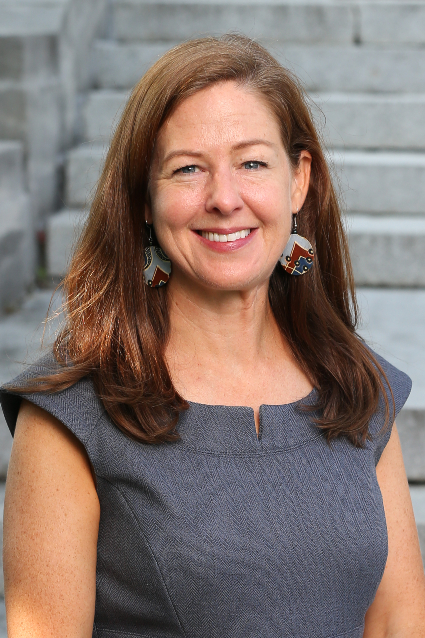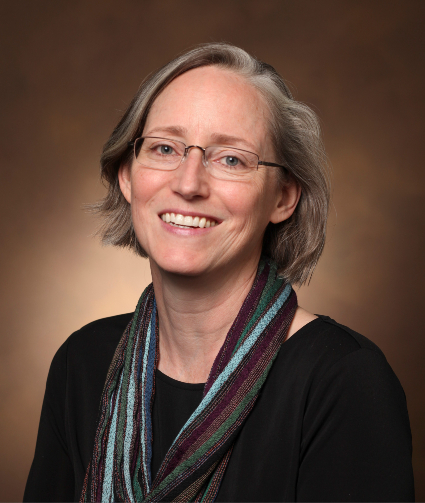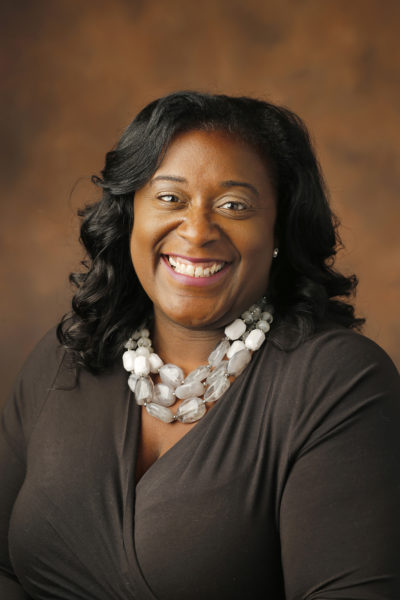The Margaret Cuninggim Women’s Center has named five individuals from the Vanderbilt community as recipients of its annual awards for 2022.
Margaret Cuninggim Women’s Center Leadership Award

The Margaret Cuninggim Women’s Center Leadership Award honors an undergraduate or graduate student who demonstrates leadership in activities that contribute to the achievements, interests and goals of women or that promote gender equity. This year, a student at the Owen Graduate School of Management was presented with this award.
Liza Moskowitz has worked to support women’s academic success at the business school since she arrived in the fall of 2020. In her role as president of the Women’s Business Association, she revised the organization’s bylaws to encourage the involvement of more women, especially first-year students, in the association’s activities. Outside of her formal role in the WBA, she organized study sessions and tutored classmates as early as her first semester on campus. In partnership with the Career Management Center at Owen, she helped to develop recruitment strategies that paired prospective students with current women students. She also has advocated for the revision of the curriculum to include cases that reflect more diverse perspectives. As part of this effort, she has organized a team that is mapping the courses taught at Owen to quantify how well they represent women and marginalized groups. One of her nominators noted the importance of this work since the curriculum in business schools “has historically not paid a great deal of attention to achieving this type of diversity.”
Mentoring Award

The Mentoring Award honors a member of the Vanderbilt University community who fosters the professional and intellectual development of Vanderbilt women. This year, three people are recognized.
The first recipient of the Mentoring Award is George M. Hornberger, University Distinguished Professor of Civil and Environmental Engineering and Earth and Environmental Sciences, Emeritus. According to one of his nominators, Hornberger “deeply and genuinely cares about the success of junior faculty and his women colleagues.” Instead of intimidating junior faculty, this nominator continued, Hornberger “made me feel welcomed and extremely valued and important, which influenced my confidence in my work and my career.” Another nominator said that he “guides and supports his students with an invisible hand, never eager to take credit but always ready to encourage and celebrate his students.” Another nominator noted that, during her time as a graduate student, most of the people in Hornberger’s research group were women, and that “this was, by no means, an accident.” Indeed, Hornberger’s commitment to advancing the careers of junior faculty and, especially, graduate students is a through-line of his career.

The second recipient of the Mentoring Award is Marie H. Martin, assistant professor of health policy and associate director for education and training at the Vanderbilt Institute for Global Health. Martin’s nominators wrote that a “dedication to lifelong mentorship of women and diverse groups is a cornerstone” of her ethos, explaining that she is both a mentor and an “advocate.” Although Martin designed a five-tiered mentoring structure for students and mentors in the Master of Public Health program, nominators spoke effusively of her skill in mentoring in informal ways as well. One nominator wrote that Martin “taught me how to handle difficult partnerships and turn obstacles into opportunities, an approach that I still use today to solve problems.” Another nominator said, “Once you are a mentee of Marie, you are always a mentee, and she lovingly supports her mentees throughout their studies and careers.”

The third recipient of the Mentoring Award is Elizabeth Zechmeister, Cornelius Vanderbilt Professor of Political Science and director of the Latin American Public Opinion Project. Zechmeister’s many letters of recommendation praised her for the support she consistently offers students, faculty and staff. Nominators praised the widespread mentoring system she has cultivated within LAPOP, explaining that “she has consistently connected women to one another at all levels.” Letters of support spoke of her “deep concern for others,” her “strong ethical orientation,” and her willingness to give her time generously. One letter of support from a junior faculty member said that Zechmeister has given “more feedback on projects from start to finish than any other academic mentor I’ve ever had.” Another nominator stated that Zechmeister teaches everything from self-advocacy skills to “tenacity in the face of rejection.”
Mary Jane Werthan Award

The Mary Jane Werthan Award is presented annually to an individual who has contributed significantly to the advancement of women at Vanderbilt University. The award honors three qualities characteristic of its first recipient, for whom the award named: vision, persistence and extraordinary skill in interpersonal and institutional relations.
This year’s winner of the Mary Jane Werthan Award is Nicole M. Joseph, associate professor of mathematics education in the Department of Teaching and Learning. Through a grant from the Trans-Institutional Programs initiative, Joseph formed the Vanderbilt Community Lab for the Intersectional Study of Black Women and Girls in Society. The VCL includes several initiatives, including the STEM Sistah Network, which provides intersectional mentoring and support to Black women graduate students and faculty, and the Annual March for Black Women in STEM, which brings attention to disparities and inequities in the STEM pipeline that disadvantage Black women. One nominator said that Joseph’s skill as a communicator is central to her work, stating that she is able to convey clearly why inclusivity in STEM fields is of central significance. Another nominator wrote that Joseph’s “willingness to speak truth no matter the consequence and her vision for a better future for women make her an ideal candidate for this award.”